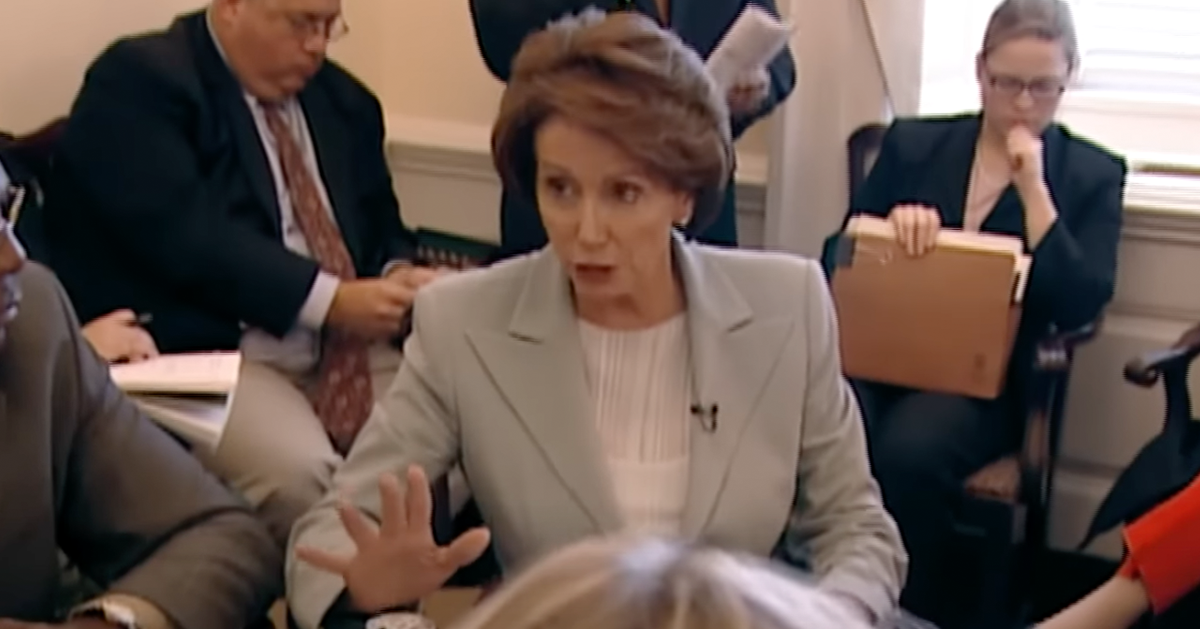Nancy Pelosi's Visit To Dalai Lama Stir Controversy With China
In a dramatic showdown of geopolitical tensions, U.S. House Speaker Nancy Pelosi and members of a bipartisan delegation met with the Dalai Lama in India. This move riled the Chinese government.
Mail Online reported that Nancy Pelosi's recent meeting with the Dalai Lama in India and endorsement of the Resolve Tibet Act has generated fierce opposition from Beijing.
Nancy Pelosi visited the 88-year-old Dalai Lama at his residence on a Wednesday. This meeting occurs during increased U.S.-China tensions over Tibetan autonomy and human rights issues. The Dalai Lama has lived in India since fleeing Tibet in 1959 and established his administration there.
Understanding the Dalai Lama's Significance
The Dalai Lama is a central figure in the Tibetan struggle for autonomy. China views him as a separatist despite his repeated denial of these accusations, emphasizing his desire for significant Tibetan autonomy under Chinese sovereignty rather than complete independence.
Pelosi's greeting of the Dalai Lama mirrored a recent similar interaction between U.S. President Joe Biden and Pope Francis, symbolizing a significant alignment with issues of spiritual significance and international diplomacy.
During her visit, Pelosi made pointed remarks about Chinese President Xi Jinping, illustrating the heightened diplomatic rift. Despite her staunch critique, Pelosi acknowledged that the Dalai Lama prefers a more pacifistic approach, advising prayer for her critical views on China.
Pelosi's Discussions Spark Controversy
The U.S. delegation's visit was a courtesy call and an emphatic political statement supporting the Tibetan cause. Pelosi was accompanied by Republican Rep. Michael McCaul, who showcased bipartisan support for Tibet's fight for autonomy.
Beijing's immediate response to the visit was sharply negative. Chinese officials have condemned the promotion of the Resolve Tibet Act, which the U.S. Congress passed to facilitate dialogue between the Tibetan government-in-exile and Chinese officials. The act is pending the President's signature before becoming law.
Chinese spokesperson Lin Jian warned of "resolute measures" if the White House proceeds to sign the bill into law, signaling a potential escalation in tensions between the two powers.
International Implications of the U.S. Legislative Move
Addressing a gathering outside the Dalai Lama's residence, Pelosi publicly promoted the Resolve Tibet Act. She described the bill as precise in its intentions towards the freedom of Tibet, a statement that was met with applause from the onsite audience and Tibetan supporters globally.
Her firm stance on Tibetan issues underscores a significant moment in U.S. foreign policy, directly challenging China's policies towards Tibet.
Representative Michael McCaul also highlighted the persistent pressure from China, revealing that the delegation had received warnings from the Chinese Communist Party against their visit. Their presence at the Dalai Lama's residence deliberately defied these warnings.
Tibetan and Chinese Relations: A Complex History
Relations between the Tibetan exiles and China have been fraught since 1959, when the Dalai Lama fled to India following a failed uprising against Chinese rule in Tibet. The town has since been the headquarters of the Tibetan government-in-exile.
Communication between the Dalai Lama's representatives and Beijing severed in 2010, leaving little room for direct dialogue, a gap the U.S. aims to bridge with the Resolve Tibet Act.
India, the host of the Tibetan government-in-exile, recognizes Tibet as part of China, placing it in a delicate position diplomatically.
The Legacy and Global Influence of the Dalai Lama
Despite his delicate health, the Dalai Lama plans to travel to the U.S. for medical treatment. He has historically engaged with multiple U.S. presidents, underscoring his global influence and the international dimension of the Tibetan issue.
In her comments, Pelosi emphasized the lasting legacy of the Dalai Lama's message of compassion and purity of soul, contrasting it with her critical view of President Xi.
Despite Beijing's stern stance, the meeting between Pelosi and the Dalai Lama signifies a pivotal moment, reaffirming international support for Tibetan cultural and political identity.
In conclusion, Pelosi's visit embodies a potent mix of diplomatic advocacy and international strategy, reinforcing U.S. support for Tibet while challenging China's policies. The ongoing debate over the Resolve Tibet Act and its implications for Sino-American relations looms large as the act awaits presidential assent.




